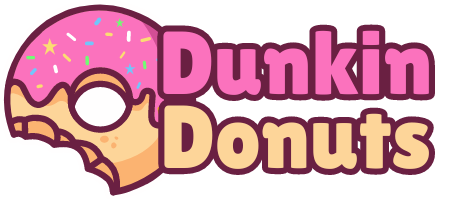Practical Strategies for Structuring Interview Questions
Key Takeaways
- Structured interviews lead to more consistent, objective, and fair evaluations of candidates.
- Aligning interview questions with specific job requirements helps target the right skills and experiences.
- Open-ended, behavioral, and situational questions elicit candid responses and deeper insights.
- Assessing cultural fit and active listening are critical for selecting candidates who will thrive within the organization.
- AI tools can supplement, but not replace, human judgment in the preparation and execution of interviews.
A structured interview process is essential for fair, reliable, and objective hiring decisions. By building a consistent framework around structured interview questions, organizations can compare candidates more effectively and minimize bias. Standardizing the interview experience enhances both the candidate’s perception of your organization and the confidence of hiring teams. For comprehensive insights and additional tips, check out this authoritative resource on structured interview questions. Implementing innovative strategies not only uncovers candidates’ true potential but also ensures a cohesive evaluation process across the board, enabling organizations to build stronger, more diverse workplaces.
Understanding the Role Requirements
A well-prepared interview begins with a thorough understanding of the job description, including its core duties and key skills. This involves collaboration with supervisors, team members, and other stakeholders to gain insight into the role’s real-world demands. Conducting a job analysis or examining similar roles can also enhance clarity.
Interview questions should reflect both the technical and interpersonal aspects of the position. For example, a project management role should include questions about planning, milestones, and problem-solving. Soft skills, such as adaptability and communication, are equally important to assess. Overall, this preparation ensures clearer expectations and more accurate evaluations of candidate fit.
Crafting Open-Ended Questions
Open-ended questions are foundational to compelling interviews because they encourage dialogue, self-reflection, and a demonstration of problem-solving capabilities. Unlike closed yes-or-no prompts, open questions prompt candidates to share their experiences, reveal their rationale, and elaborate on both successes and setbacks. For example:
- “Can you describe a challenging project you managed and how you handled it?”
- “What strategies do you employ to stay updated with industry trends?”
These questions offer a window into candidates’ depth of knowledge, ability to communicate clearly, and how they approach ambiguity or new information.
Open-ended questions also help interviewers assess qualities such as passion, originality, and growth potential. Candidates are given the space to showcase not just what they have done, but how they think and why they make certain decisions. By actively listening and allowing for in-depth responses, organizations can identify individuals who are innovative, resourceful, and aligned with the company’s mission and long-term objectives.
Incorporating Behavioral Questions
Behavioral questions help predict future job success by examining how candidates handled past situations. Using the STAR method (Situation, Task, Action, Result), these questions encourage candidates to share detailed stories that reveal competencies and values.
- Example: “Tell me about a time when you had to resolve a conflict within your team. What was the situation, and what actions did you take?”
- They are effective for uncovering traits such as leadership, resilience, and accountability. Follow-up questions deepen insights into work ethic and potential red flags. Ultimately, behavioral questions reveal a candidate’s soft skills and demonstrate how they may contribute to team cohesion and organizational goals.
Utilizing Situational Questions
Situational questions pose hypothetical scenarios to evaluate how candidates think under pressure and adapt to challenges.
- Example: “If you were assigned a project with a tight deadline and limited resources, how would you prioritize your tasks?”
- These questions reveal candidates’ problem-solving approaches, decision-making styles, and risk tolerance. They are especially relevant for roles requiring flexibility and quick judgment, helping identify individuals who can succeed in unpredictable or high-stakes environments.
Assessing Cultural Fit
Beyond technical ability, success also relies on how well a candidate aligns with the company’s mission, values, and work style. Thoughtfully crafted questions uncover whether a candidate fits the organization’s culture.
- Example questions:
- “What type of work environment do you thrive in?”
- “Can you describe a time when you contributed to a positive team culture?”
- Responses help assess motivation, interpersonal style, and value alignment. The goal isn’t uniformity but finding individuals who complement the team while embracing the organization’s core principles. This balance supports both innovation and cohesion.
Maintaining Consistency and Fairness
Consistency is the foundation upon which fair interview processes are built. By preparing a core set of structured questions and deploying them across every interview, organizations guarantee each candidate is judged against identical benchmarks. This approach minimizes the risk of unconscious bias and facilitates clearer, more direct comparison between applicants’ skills and experiences.
Utilize objective rating systems or scorecards to enhance fairness further. These tools provide tangible evidence for hiring decisions, support compliance with equal opportunity regulations, and create a robust audit trail. Consistency in question delivery and scoring ensures that the hiring process withstands both internal review and external scrutiny, ultimately protecting the integrity of your organization’s talent pipeline.
Active Listening and Follow-Up
Active listening transforms the interview from a routine Q&A into a meaningful conversation. By paying full attention to candidates’ answers, refraining from interruptions, and engaging with follow-up questions, you can unlock details that might otherwise go undiscovered. For example, if a candidate references a multifaceted project, follow up by asking how they managed competing deadlines or resolved internal disagreements.
This approach fosters an open environment where candidates feel respected, seen, and encouraged to share authentically. Skilled interviewers use details from previous answers to delve deeper, clarify ambiguities, and uncover new insights. Ultimately, active listening and probing with thoughtful questions build trust, reveal genuine ability, and ensure that your organization makes well-informed hiring decisions.
Leveraging AI Tools for Interview Preparation
The integration of artificial intelligence is revolutionizing recruitment by enabling faster, more thoughtful, and more tailored interviews. AI platforms can analyze job descriptions, customize questions, and identify skill gaps before interviews begin. These tools also help reduce bias and establish consistent interview standards. While AI enhances preparation and decision-making, human judgment remains essential for assessing cultural fit and contextual nuances. A hybrid approach that combines AI efficiency with human expertise leads to more balanced hiring decisions.
Structured interviews rooted in objective questions and supported by technology yield better hiring outcomes. Practical strategies focused on fairness, clear communication, and AI support enable companies to identify top talent and enhance diversity.
Read more: Master Energy Management Using Smart Visualization Technology » Dunkin Donuts
Top 7 Phone Tracking Tools for Kids: A Parent’s Guide to Staying Connected and Safe
Master Energy Management Using Smart Visualization Technology » Dunkin Donuts






